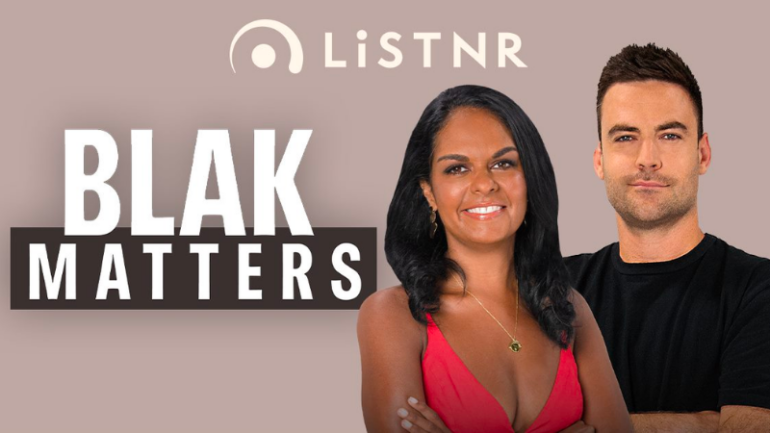LiSTNR introduces Teela Reid and Michael “MC” Christian, co-hosts of the new podcast, Blak Matters – an exploration of First Nations issues, and why they matter.
Teela and MC are childhood friends, growing up on the same street in Gilgandra, New South Wales together. But while it may have looked like the two shared similar lives, as Teela got older, she knew what she experienced as a child was completely different than MC.
In the first episode of Blak Matters, Teela shares with MC about a time she was sick with the chicken pox and her single mother kept her home from school for a couple of days to let her rest and recover.
Listen to the first episode now:
“When I was ill, the authorities rocked up to our door step and I remember being in bed and Mum ran in and looked at me and said, ‘you need to hide in the cupboard’,” Teela recalled.
“And I didn’t really understand at the point why, but as an adult, I totally get her fear… because I was marked absent as an Aboriginal kid at school.
“As we know, there’s a history of authorities in NSW in particular in which Aboriginal kids and particularly Aboriginal mums are targets and their kids are removed.”
As a First Nations person, this experience was something Teela, a proud Wiradjuri and Wailwan woman, and her family and friends were subjected to along with countless other acts of discrimination on too many occasions.
Teela hopes through conversations on Blak Matters with MC, the two can share stories and explain the context of Aboriginal affairs leading to the Voice referendum.
In this episode, that conversation starts by explaining what the Uluru Statement from the Heart is, and why it’s important for Teela and other First Nations People to publicly share their stories as Australia moves forward and acknowledges and accepts the first custodians of the land we live on today.
“It became clear to me I needed to learn how to navigate these two very different worlds that I was growing up in,” Teela said.
“There’s a real sense of obligation in my life to leave a legacy that is able to give [the next generation] greater power and control over their lives and allow them to create the space they need to tell those stories, to use those voices, and just be really proud of who they are as blakfullas.
“I’m the generation that’s kind of obligated to change that.”
